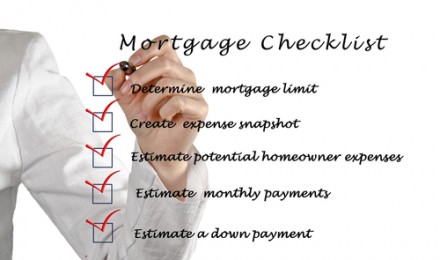When you are buying a house, there are several fees associated with home mortgage costs – many of which need to be paid at the closing. Some are negotiable while some are not. In total, they can easily add several thousand dollars to the cost of purchasing a home. The sheer quantity of fees can be overwhelming and confusing. Below is a list of common fees and what services they pay for.
Title Search Fee: The lender hires a title professional to search the public records to ensure there is clear title. They look for signs of fraud or outstanding liens on the property that might interfere with the sale.
Title Insurance: Despite the title search, lenders still want to be protected in case a title problem crops up later. Therefore, one of the home mortgage costs is a one-time payment for insurance that ensures a clear chain of title and protects against fraud and forgery. Customarily there are two policies: one for the home buyer and one for the lender.
Appraisal Fee: The lender usually has an independent, certified appraiser estimate the value of the house and land and search records to ensure the property is worth the loan amount.
Loan Origination Fee: Also called an underwriting, administrative, or processing fee, this home mortgage cost is the amount charged by the lender for their work in collecting information and administering your loan. It usually varies according to the value of the loan, although some lenders charge a flat rate. These fees differ from lender to lender, so it pays to compare different companies when looking for a mortgage. Lenders may also charge a separate fee for running a credit check.
Interest: This is pro-rated interest the home buyer pays for whatever portion of the month remains after closing. For instance, if you close on the 15th of the month, you need to pay the interest for the second half of the month. Then you will start making regular monthly payments at the beginning of the next month.
Private Mortgage Insurance (PMI): Lenders usually require PMI if a you put down less than a 20% down payment so they are protected in case you default on your mortgage. Once you reach 20% equity in your home, you can request that the PMI be dropped. By federal law, PMI will be canceled automatically when your equity reaches 22% — as long as you have not missed any home mortgage costs payments. You may need to make your first PMI payment at closing.
Taxes: You will need to pay any state or local taxes that apply for purchasing a house. There may also be state and local fees for recording the change of title.
Escrow: Most lenders require that you pay some of your property taxes, PMI, and homeowners/hazard insurance (and flood insurance, if necessary) in advance as part of your home mortgage costs. They (or an escrow company) keep these funds in an escrow account until it is time to pay them. These charges may be folded into your monthly payment, but depending on when in the year your closing takes place, payment may be required at closing.
Other Home Mortgage Costs: You are likely to be charged a surveyor’s fee for the surveying of your property’s boundaries. Some lenders charge a fee when they require a home inspection or termite inspection. There are transfer fees, which can include document courier, email, or wire transfer charges. You may pay fees for the services of the mortgage broker or a notary. At closing, some buyers pay a one-time loan discount fee (or points – each point equals 1% of the loan) that lower the mortgage interest rate. Points are tax deductible for the year in which you purchase your house.
When you are buying a house, there are several fees associated with home mortgage costs – many of which need to be paid at the closing. Some are negotiable while some are not. In total, they can easily add several thousand dollars to the cost of purchasing a home. The sheer quantity of fees can be overwhelming and confusing. Below is a list of common fees and what services they pay for.
Title Search Fee: The lender hires a title professional to search the public records to ensure there is clear title. They look for signs of fraud or outstanding liens on the property that might interfere with the sale.
Title Insurance: Despite the title search, lenders still want to be protected in case a title problem crops up later. Therefore, one of the home mortgage costs is a one-time payment for insurance that ensures a clear chain of title and protects against fraud and forgery. Customarily there are two policies: one for the home buyer and one for the lender.
Appraisal Fee: The lender usually has an independent, certified appraiser estimate the value of the house and land and search records to ensure the property is worth the loan amount.
Loan Origination Fee: Also called an underwriting, administrative, or processing fee, this home mortgage cost is the amount charged by the lender for their work in collecting information and administering your loan. It usually varies according to the value of the loan, although some lenders charge a flat rate. These fees differ from lender to lender, so it pays to compare different companies when looking for a mortgage. Lenders may also charge a separate fee for running a credit check.
Interest: This is pro-rated interest the home buyer pays for whatever portion of the month remains after closing. For instance, if you close on the 15th of the month, you need to pay the interest for the second half of the month. Then you will start making regular monthly payments at the beginning of the next month.
Private Mortgage Insurance (PMI): Lenders usually require PMI if a you put down less than a 20% down payment so they are protected in case you default on your mortgage. Once you reach 20% equity in your home, you can request that the PMI be dropped. By federal law, PMI will be canceled automatically when your equity reaches 22% — as long as you have not missed any home mortgage costs payments. You may need to make your first PMI payment at closing.
Taxes: You will need to pay any state or local taxes that apply for purchasing a house. There may also be state and local fees for recording the change of title.
Escrow: Most lenders require that you pay some of your property taxes, PMI, and homeowners/hazard insurance (and flood insurance, if necessary) in advance as part of your home mortgage costs. They (or an escrow company) keep these funds in an escrow account until it is time to pay them. These charges may be folded into your monthly payment, but depending on when in the year your closing takes place, payment may be required at closing.
Other Home Mortgage Costs: You are likely to be charged a surveyor’s fee for the surveying of your property’s boundaries. Some lenders charge a fee when they require a home inspection or termite inspection. There are transfer fees, which can include document courier, email, or wire transfer charges. You may pay fees for the services of the mortgage broker or a notary. At closing, some buyers pay a one-time loan discount fee (or points – each point equals 1% of the loan) that lower the mortgage interest rate. Points are tax deductible for the year in which you purchase your house.






